Literary rating: ★★★★
Kick-butt quotient: ☆☆½
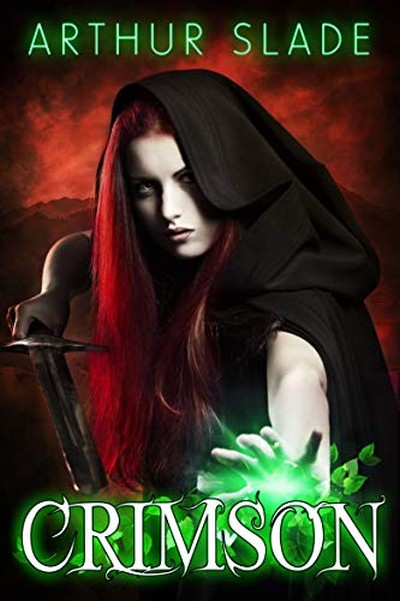 The world of Illium has enjoyed a millennium of peace under its powerful queen Servilia. Though “enjoyed” might be the wrong word, since it has come at the cost of freedom, and harsh justice. A victim of the latter is 15-year old Fen, who four years previously, had her hand lopped off for stealing a trinket from a merchant’s stall. Worse follows, as she wakes up to find her hair has turned red, the sign of a “wildmage” – someone who has magical powers, an ability Servilia seeks to extinguish before it can pose a threat to her rule.
The world of Illium has enjoyed a millennium of peace under its powerful queen Servilia. Though “enjoyed” might be the wrong word, since it has come at the cost of freedom, and harsh justice. A victim of the latter is 15-year old Fen, who four years previously, had her hand lopped off for stealing a trinket from a merchant’s stall. Worse follows, as she wakes up to find her hair has turned red, the sign of a “wildmage” – someone who has magical powers, an ability Servilia seeks to extinguish before it can pose a threat to her rule.
Fen is forced to leave her family, and seek sanctuary in the forest of Helwood which provides the only area outside the queen’s control. She meets another wildmage, Ithak, with the talent of invisibility, who brings her to the legendary Mansren, who lives in the centre of Helwood. History had told her he was evil incarnate, overthrown by the queen after a violent war, a thousand years earlier. But how accurate is that version? For he offers to help Fen free her sister from Servilia’s dungeon, if she helps him become whole again. But is the reward worth the cost – both personally to Fen, and for Illium?
This is a well-written page-turner, which I found myself looking forward to reading each night. It poses some interesting more dilemmas, without ever getting bogged down in them, such as the limits of personal responsibility, the veracity of the past (as Ithak says, “Those who win wars write the histories”) and the balancing of evils against each other. Fen is initially prepared to do anything to rescue her sibling; however, she gradually realizes that by doing so, she may have unleashed a more destructive force on the entire world. For Mansren’s mind has been imprisoned by Servilia in the middle of a lava lake for centuries, which hasn’t exactly improved his state of sanity, charming and eloquent as he may be.
I will say that the means by which the dilemma is resolved is perhaps a little bit of a stretch. Perhaps a greater emphasis on the powers locked within Helwood, and how Fen taps into them, might have been better. The setting also appears to be Chinese, though I’m not sure why; I was quite surprised when this suddenly cropped up. I certainly wouldn’t have guessed this from the cover, and it’s little more than window-dressing. However, the story does a lot of things right, bringing us along with Fen on her heroic arc, as she grows into her powers and learns that everything she has been told may not necessarily be the truth. Though she’s “just” a teenager, there are few of the obvious trappings of YA fiction, and it’s the better for it.
It is a little restrained on the action front, with Fen largely refusing to use her abilities against others, and in the final act, being more an observer up until the very end. However, these moral restraints help her character from becoming over-powering, and on several occasions, there’s a genuine sense of threat. With this being a stand-alone book, it is entirely possible it could end in her being forced to make a heroic sacrifice, and Slade handles that aspect particularly well. I was actually quite sad there are no further volumes, but it’s also nice to have a story which is entirely wrapped up in a fully satisfactory way. I’ll have to make do with perhaps checking out some of Slade’s other works.
Author: Arthur Slade
Publisher: Dava Enterprises, available through Amazon, both as a paperback and an e-book





 This is as much about the philosophical underpinnings of karate, and how it can be used for personal growth. The instigator in this case is Chae-yeong (Jung), a teenage girl who has just transferred to a new school after issues at her previous educational establishment. Her long-suffering father, a karate master has barely registered her there, when trouble finds Chae-yeong. She uses her skills to rescue a student, Jong-goo (Oh), who is refusing to help some bullies cheat in an upcoming exam. This turns out to get her an unwanted high profile, as the school is basically a gangsters’ paradise.
This is as much about the philosophical underpinnings of karate, and how it can be used for personal growth. The instigator in this case is Chae-yeong (Jung), a teenage girl who has just transferred to a new school after issues at her previous educational establishment. Her long-suffering father, a karate master has barely registered her there, when trouble finds Chae-yeong. She uses her skills to rescue a student, Jong-goo (Oh), who is refusing to help some bullies cheat in an upcoming exam. This turns out to get her an unwanted high profile, as the school is basically a gangsters’ paradise.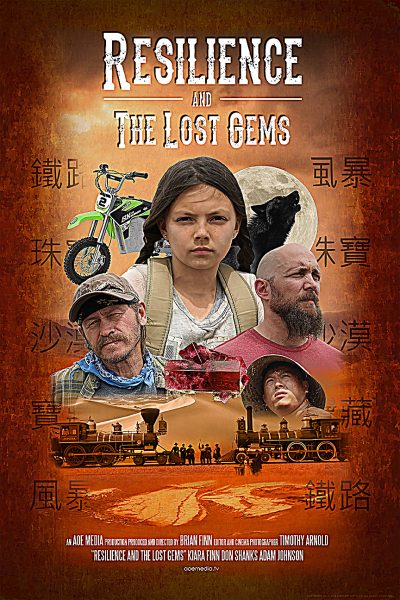
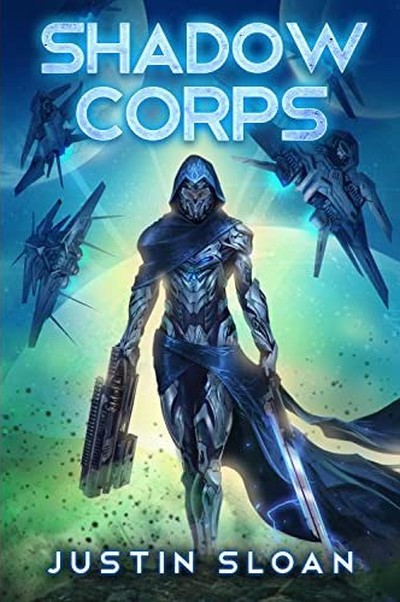
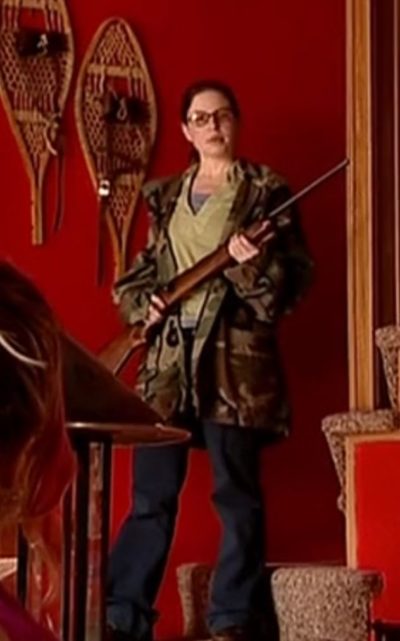

 Having previously read and thoroughly enjoyed, the same author’s
Having previously read and thoroughly enjoyed, the same author’s 
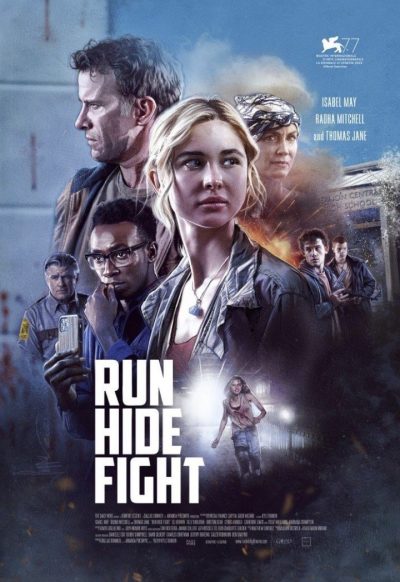
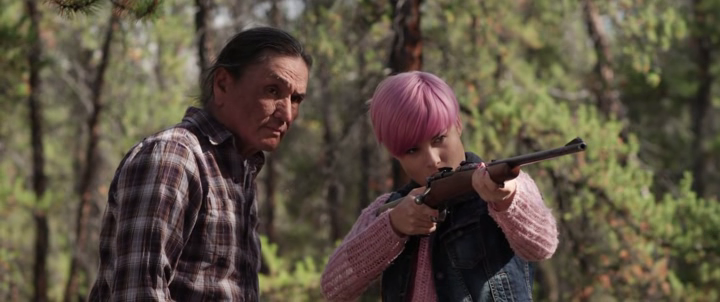 While certainly more relaxed that many of the films we cover here, this makes it in on the strength of its heroine’s character arc. That belongs to Lia (Jacobs), a teenage girl in the Northwest Territories of Canada, who is being raised by her father. When he has to go off for work, she gets sent north of the Arctic Circle to live with her grandmother (Jerome) for the nightless summer. She hates the rural life, and runs away, stealing a boat in the hope of reaching Dawson City, the nearest big town – not realizing it would be four weeks journey. She falls overboard after her boat breaks down, and is lucky to be rescued by Alfred (Howard), a hunter from the local Gwich’in tribe. As they cross the remote wilderness, she begins to appreciate it, bonding with the thoroughly down-to-earth Alfred and learning from him – wolves hate the smell of tobacco, apparently. But when an accident befalls her guide, Lia is going to have to dig into her own resources.
While certainly more relaxed that many of the films we cover here, this makes it in on the strength of its heroine’s character arc. That belongs to Lia (Jacobs), a teenage girl in the Northwest Territories of Canada, who is being raised by her father. When he has to go off for work, she gets sent north of the Arctic Circle to live with her grandmother (Jerome) for the nightless summer. She hates the rural life, and runs away, stealing a boat in the hope of reaching Dawson City, the nearest big town – not realizing it would be four weeks journey. She falls overboard after her boat breaks down, and is lucky to be rescued by Alfred (Howard), a hunter from the local Gwich’in tribe. As they cross the remote wilderness, she begins to appreciate it, bonding with the thoroughly down-to-earth Alfred and learning from him – wolves hate the smell of tobacco, apparently. But when an accident befalls her guide, Lia is going to have to dig into her own resources. Turns out that The Asylum are not the only company who makes mockbusters. As its alternate name makes clear, this Lifetime TVM is clearly a knock-off of the title mentioned above, down to the same, basic plot. Two teenage girls begin doing crime, largely for the excitement. A teacher becomes aware of their exploits and decides to blackmail them for his own benefit, by making them escalate their activities. This brings them increasingly under the scrutiny of both authorities and criminal elements, not to mention parental disapproval, eventually leading to a climax where all these aspects cross paths. As my
Turns out that The Asylum are not the only company who makes mockbusters. As its alternate name makes clear, this Lifetime TVM is clearly a knock-off of the title mentioned above, down to the same, basic plot. Two teenage girls begin doing crime, largely for the excitement. A teacher becomes aware of their exploits and decides to blackmail them for his own benefit, by making them escalate their activities. This brings them increasingly under the scrutiny of both authorities and criminal elements, not to mention parental disapproval, eventually leading to a climax where all these aspects cross paths. As my